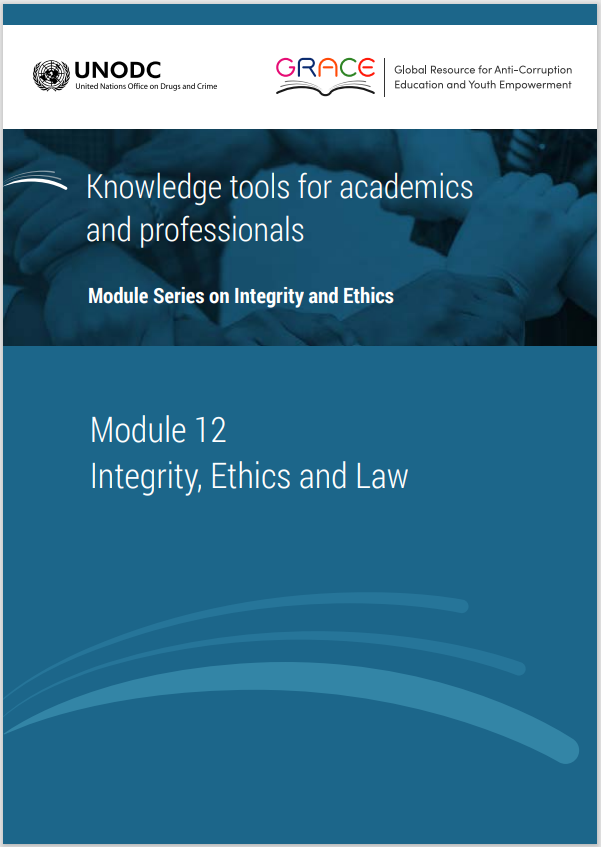This module is a resource for lecturers
Advanced reading
The following readings are recommended for students interested in exploring the topics of this Module in more detail, and for lecturers teaching the Module:
- Blackburn, Simon (2001). Ethics A Very Short Introduction. Oxford: Oxford University Press. » This book in the Oxford University Press "Very Short Introduction" series is written in an accessible way but engages with the challenging issues raised by ethics. It is appropriate for advanced undergraduates, and graduate students if paired with more sophisticated materials.
- Changing Minds (2018). Cognitive dissonance . » This short webpage explains the psychological principle of cognitive dissonance and contains references to additional sources.
- Coady, Sidney and Sidney Bloch (1996). Codes of Ethics and the Professions. Carlton South, Victoria: Melbourne University Publishing. » This book addresses the issues arising from codes of ethics for professions clearly and engagingly. See especially pp. 8-27.
- Festinger, Leon (1957). A Theory of Cognitive Dissonance. Evanston, Illinois: Row and Peterson. » Check Google Books for available portions of this book, which introduce the classic psychological principle.
- Gandhi, Mahatma (1948-49). Non-violence in Peace and War. Ahmedabad: Navajivan Publishing House. » This book includes writings by the leader Mahatma Gandhi regarding civil disobedience and breaking unethical or unjust laws.
- Gunning Jennifer and others, eds. (2005). Ethics, Law and Society, Volume 4. Surrey, England; Burlington, Vermont, USA: Ashgate. » Cardiff Centre for Ethics, Law and Society publishes a series on issues in ethics, law and society that includes well-focused chapters on different issues. Portions of this volume are available on Google Books, but interested lecturers should check to see what is currently available in their country.
- Heyman, Steven J. (1994). Foundations of the duty to rescue. 47 Vanderbilt Law Review 673. » This law-focused article argues that over and above ethical concerns, the law should include a duty to rescue others from harm.
- Internet Dictionary of Philosophy.
-
- Ethics .
- Moral character. » These online entries provide detailed summaries of ethical concepts and theories.
- Markie, Peter J. (1994). A Professor's Duties: Ethical Issues in College Teaching. Lanham, Maryland: Rowman & Littlefield. » This book addresses issues that arise for the lecturer rather than students, and is a recommended reading for lecturers rather than students.
- McCombs School of Business, University of Texas (2018). Ethics unwrapped . » Lecturers can review this US-focused website that contains videos, case studies, and worksheets on ethics, integrity and law.
- National Center for State Courts (2008). A summary of ethical guidelines for conducting interviews and data collection . » For a concise list of ethical issues arising when conducting interviews, lecturers can review page 2.
- Priaulx, Nicky and Anthony Wrigley, eds. (2013). Ethics, Law and Society, Volume 5. Surrey, England; Burlington, Vermont: Ashgate. » Cardiff Centre for Ethics, Law and Society publishes a series on issues in ethics, law and society that includes well-focused chapters on different issues. Portions of this volume are available on Google Books, but interested lecturers should check to see what is currently available in their country.
- Passas, Nikos and Neva Goodwin (2004). It's Legal but It Ain't Right, Harmful Social Consequences of Legal Industries. Ann Arbor, Michigan: University of Michigan Press. » The book by Passas & Goodwin is written in accessible English and it and addresses the role of corporations in behaviour that is harmful but legal. Portions of the book are available online via Google Books, but lecturers should check to see what is currently available in their country.
- Passas, Nikos (2005). Lawful but awful: 'Legal Corporate Crimes.' The Journal of Socio-Economics, vol. 34, pp. 771-786. » An article-length overview of some the issues addressed in the book by Passas and Goodwin.
- Piper, Thomas R. and others, eds. (1993). Can Ethics Be Taught? Perspectives, Challenges, and Approaches at the Harvard Business School. Boston: Harvard Business Review Press, 1993. » This book addresses a question lecturers should be asking when they teach ethics. The book traces the development and implementation of the Leadership, Ethics, and Corporate Responsibility program at the Harvard Business School, which resulted in a required course in ethics, new electives, and integration of ethical issues and corporate responsibility into the first year curriculum.
- Shavell, Steven (2001). Law versus morality as regulators of conduct. Harvard Law School John M. Olin Center for Law, Economics and Business Discussion Paper Series. Paper 340. » This article examines how law and morality regulate conduct in different ways, and when law and morality alone, or law and morality together, are best suited to regulate conduct.
- Stanford Encyclopedia of Philosophy.
-
- Entries on Ethics .
- Integrity .
- Entries on Law . » The entries in this online encyclopedia are for advanced undergraduates and graduate students, and are a good source for additional readings.
- Thoreau, Henry David (1849). On the Duty of Civil Disobedience . » Thoreau's essay is a classic in the area of civil disobedience and should be included in a discussion of that issue, together with excerpts from Gandhi's book "Non-violence in Peace and War" which is included in this list.
- Wacks, Raymond (2015). Law: A Very Short Introduction. 2nd ed. Oxford: Oxford University Press. » Another book in the Oxford University Press "Very Short Introduction" series, this book introduces students to law without undue jargon. It is appropriate for advanced undergraduates, and graduate students if paired with more sophisticated materials.
 Next page
Next page
 Back to top
Back to top
